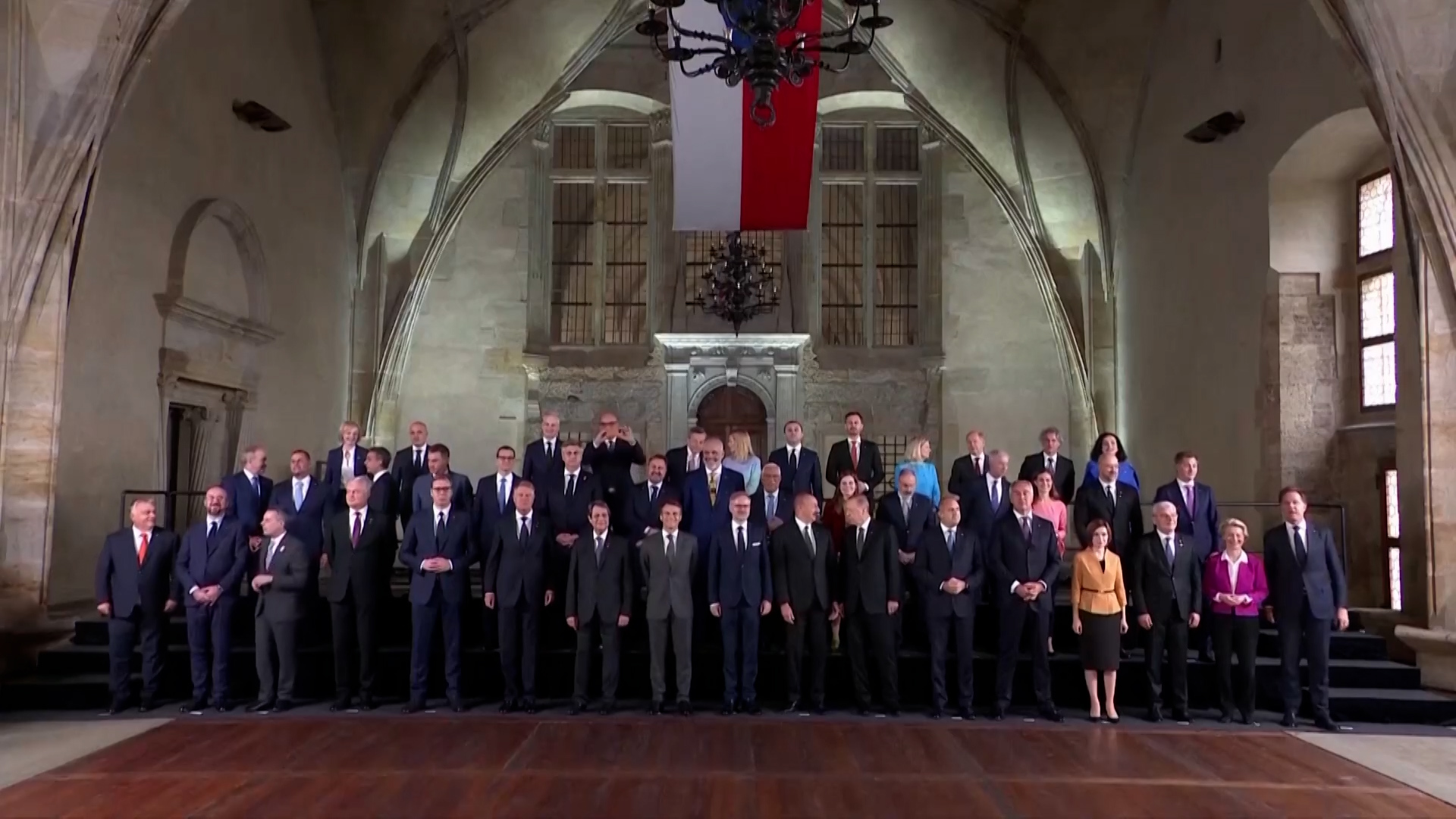European leaders agreed today, Friday, at the conclusion of their summit in the Czech capital, Prague, to continue providing political and military support to Ukraine, amid disagreements over setting a ceiling for the price of Russian gas.
At the conclusion of the summit, European Council President Charles Michel said that the Council had approved an eighth package of sanctions to put more pressure on Moscow.
Michel reiterated support for Ukraine with all it needs financially, politically and militarily, as he put it.
The agreement comes after the foreign policy commissioner Josep Borrell submitted a request to the leaders to release the sixth batch of arms purchase payments to Kiev.
In Luxembourg, the foreign ministers will discuss in the middle of this month the details of the EU mission that will be sent to Ukraine to train Ukrainian forces.
For his part, Ukrainian President Volodymyr Zelensky called on the European Union to exert more pressure on the Russian energy sector, considering that Russia is exerting unprecedented pressure on the livelihood of Europeans, and called for creating conditions to protect energy facilities from Russian strikes.
Zelensky warned that the entire world is on the verge of collapse due to a possible radioactive catastrophe after Russia's seizure of the Zaporozhye nuclear power plant.
The Ukrainian president stressed the need to deal with the protection of vital infrastructure very carefully after the sabotage of gas pipelines in the Baltic Sea.
German Chancellor Olaf Schulz speaks to reporters (Reuters)
For his part, French President Emmanuel Macron said, "We have taken a decision to create a special fund that enables Ukrainians to purchase all equipment, weapons and materials directly from manufacturers, to support their efforts in the face of the Russian attack, and we allocated this fund 100 million euros at the beginning."
German Chancellor Olaf Schulz revealed that Berlin will host a conference on the reconstruction of Ukraine on the 25th of this month.
Schultz added that the Prague summit sent clear signals about the countries of Europe standing firmly on the side of Ukraine, and that Russian President Vladimir Putin's efforts to divide Europe ended in failure, as he put it.
Schultz stressed the need to provide what he called a clear response to nuclear threats that the use of nuclear weapons is unacceptable.
energy crisis
The energy price crisis dominated the discussions of the second day of the summit. According to information received from Prague, there are differences between European Union leaders regarding setting a ceiling for Russian gas prices and national rescue packages. While 15 countries demand a ceiling for gas prices, other countries refuse to do so.
Macron considered that the winter of 2023-2024 will be more difficult than the upcoming winter for Europeans in terms of gas supplies.
Macron added that Europe will intensify its talks with gas suppliers and coordinate with Asian partner countries on gas purchase deals, and will also implement mechanisms to ensure that there is financial solidarity among European countries in energy purchase transactions.
The German chancellor said that there is an agreement on the rise in gas prices and European countries will hold talks with Norway and the United States on reducing the prices of gas supplies from these two countries.
"Everyone agrees that we need to lower electricity prices, but there is no agreement on the means by which we can reach that exact end," Polish Prime Minister Mateusz Morawiecki told reporters.
Irish Prime Minister Michael Martin also said the European Commission is expected to present to the bloc's next meeting on October 20-21 a broader package that includes short-term price-cutting measures and longer-term steps to reshape the gas market.
In turn, European Commission President Ursula von der Leyen said that EU executives will present more detailed proposals to address rising energy prices in the coming weeks, and the Commission had proposed a roadmap that would include measures to help ease the burden of the energy crisis, including measures to put a ceiling on gas prices, but it There is no consensus within the European bloc about the effectiveness of capping prices.
Von der Leyen stressed the need to keep European markets united, and for the union to have a common purchase system for gas starting next spring, in order for members to avoid outbidding each other, as she put it.
"All views regarding gas supplies and electricity prices are very important in order to avoid divisions and keep our market united," the European official said.

